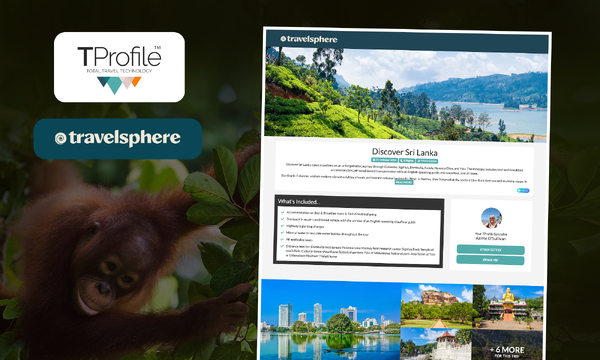Will AI replace the human travel agent?
The benefits of artificial intelligence (AI) are limited only to organisations’ capabilities to harness its potential, says Andy Owen Jones, chief executive of BD4, in the latest of our TTI Travel Tech Talk series
“The development of AI is as fundamental as the creation of the microprocessor, the personal computer, the internet and the mobile phone. It will change the way people work, learn, travel, get healthcare and communicate with each other. Entire industries will reorient around it. Businesses will distinguish themselves by how well they use it.” (Bill Gates, March 2023)
If Bill Gates’ portentous statement is correct, all companies need to look at AI, a range of tools and techniques in which computers are trained to perform tasks once the domain of the intelligence of people.
Gates was prompted by his reaction to the tools from Open AI – namely the large language model (LLM) behind the now widely hyped Chat GPT. This is the most visible manifestation of a range of AI tools from LLMs to expert systems, neural networks, machine learning and deep learning. Chat GPT is not synonymous with AI but does demonstrate its rate of improvement and disruptive capability.
AI raises the possibility of better service, lower costs and more accurate predictions, feedback and novel forms of user experience. AI systems require significant quantities of data, to be trained and to have evaluation and feedback. Chat GPT is trained on open data on the web, has significant evaluation from users and gets a lot of feedback. Other types of AI can be used to optimise many types of data from search, from user feedback or from any type of data pattern. Given selling travel is a data driven business we can expect many changes.
CONTENT CREATION
Firstly, chatbots and new user interfaces are clearly here to stay. Large players are incorporating a chat extension into their sites, combining their own data with open AI data to improve user experience. Quality concerns remain, but the rate of improvement assures us that this way of interfaces will improve substantially.
Many will also use these tools to create content. While the new advertising and search models are not yet established, it is clear that tailored content is more easily and cheaply generated by AI tools than by people.
All through the traveller’s journey, wherever data is used, there is room for optimisation. Understanding client requirements in real time, product categorisation, comparison, availability and optimisation are all tasks that have historically been undertaken by travel agents. Each of these areas is already being addressed and optimised by AI with strong results. As these come together we will see a continual stream of marginal improvements at every level of travel sales.
The limits to the benefits of AI are not technological now, but in organisations’ capabilities to envisage a future in which all areas touched by data or content can be improved. Traditional siloed organisations will be challenged as distinctions between marketing, commercial and operations break down. Communications and personalisation will be based around the customer, not around the organisation structure.
The travel value chain can be optimised by AI, and where performance is currently below that of a human operator, this will change with time as the system continues to learn. Adoption will depend on an organisation’s capability to reimagine how it works if it is continuously optimised and adaptive rather than being rigidly designed around existing processes.
The role of agents will evolve further towards customer care, problem solving and relationship management while the AI does more of the heavy lifting; finding the right available products, feeding automation and sharing knowledge.
Technology networking
Travel Technology Initiative (TTI) is a not-for-profit organisation providing members with the latest thinking on technology as well as developing industry-wide standards for travel. For more info, visit tti.org and read the first article in our TTI Travel Tech Talk series about cyber security here. TTI's Summer Forum event, What does the future hold for AI in travel and tourism?, will take place at the House of Lords on Wednesday 14 June at 1530-1700.














